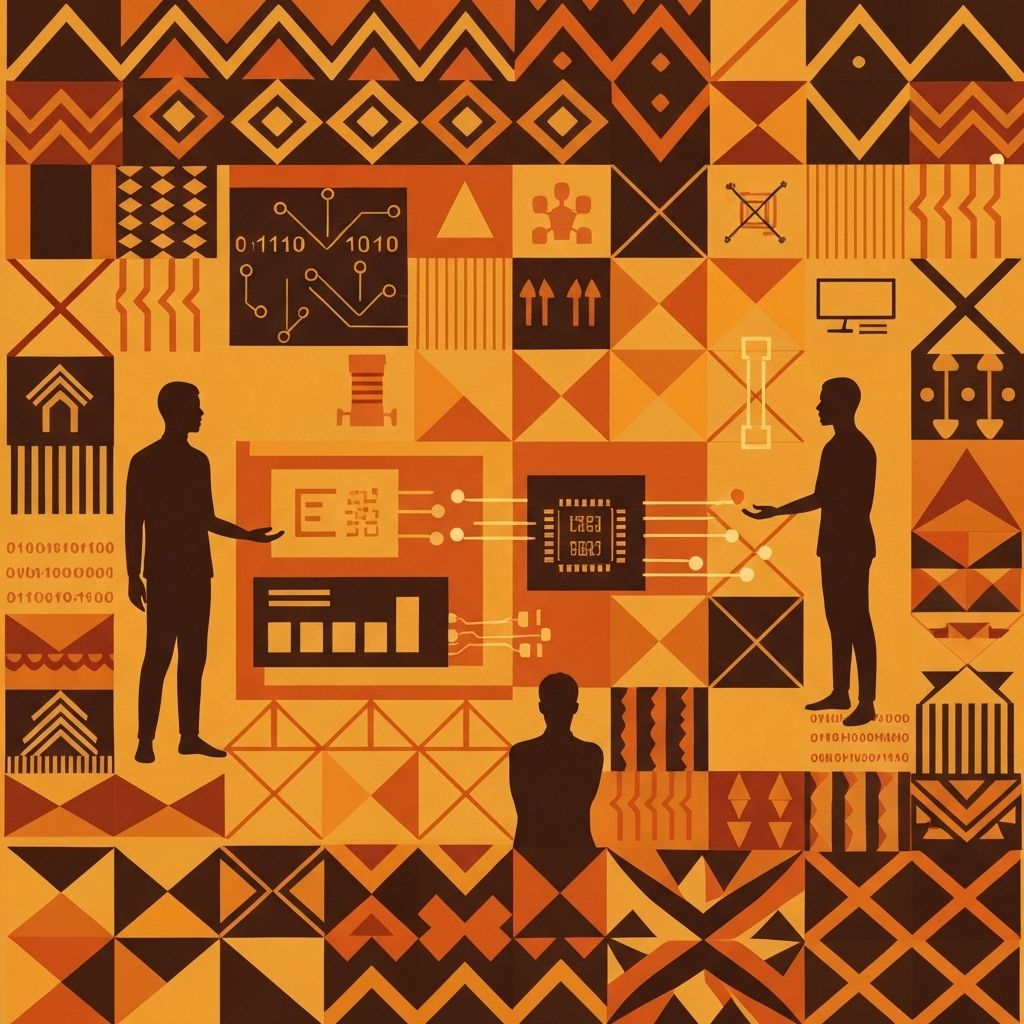
The Ethics of AI in African Contexts
July 1, 2024
The rapid advancement of artificial intelligence presents both immense potential and significant challenges, particularly when applied in diverse cultural and socio-economic landscapes. In African contexts, ethical AI development must prioritize local values, address historical inequalities, and ensure that technology serves to empower communities rather than exacerbate existing disparities.
At EarthKin, we believe that ethical design is foundational, not an afterthought. This principle becomes even more critical when developing AI systems for African markets, where the stakes are often higher and the margin for error smaller. The question isn't just whether AI can solve problems, but whether it should, and how it can do so responsibly.
The Context Challenge
Intelligence flows from well-defined context. In African markets, this context is rich, complex, and often misunderstood by external developers. Consider the difference between building a financial AI system for Lagos versus London. In Lagos, you're not just dealing with different currencies or languages—you're navigating informal economies, varying levels of digital literacy, intermittent connectivity, and deeply rooted cultural attitudes toward money and trust.
We've seen too many AI systems fail because they were built with Western assumptions baked in. An AI credit scoring system that relies heavily on formal employment history will systematically exclude millions of Africans who work in informal sectors but are perfectly creditworthy. This isn't just a technical failure—it's an ethical one.
Data Sovereignty and Ownership
One of the most pressing ethical considerations is data sovereignty. African data should benefit African people. Too often, we see extractive models where data is harvested from African users to train models that primarily benefit companies and users elsewhere. This digital colonialism perpetuates existing inequalities and undermines local development.
True ethical AI development requires local ownership of data and decision-making processes. This means involving African technologists, ethicists, and communities in every stage of development. It means ensuring that the economic benefits of AI systems flow back to the communities that generate the data.
Bias Detection and Cultural Sensitivity
Algorithmic bias isn't just a technical problem—it's a reflection of the biases of those who build the systems. When AI systems are developed without diverse African perspectives, they inevitably encode assumptions that may be harmful or exclusionary.
We've worked on projects where seemingly neutral algorithms showed clear bias against certain ethnic groups or regions. The solution isn't just better data—it's better processes. This means diverse development teams, community involvement in testing, and ongoing monitoring for bias after deployment.
Cultural sensitivity extends beyond avoiding obvious biases. It means understanding how different communities interact with technology, what they value, and what they fear. An AI system that works perfectly in Nairobi might fail completely in rural Kenya, not because of technical limitations, but because of cultural misalignment.
Building for Resilience
African infrastructure presents unique challenges that must be considered in AI system design. Intermittent power, variable connectivity, and limited hardware resources aren't bugs to be fixed—they're features of the environment that must be designed for.
This constraint actually leads to better AI. When you're forced to build systems that work on low-end devices with poor connectivity, you create more efficient, more accessible solutions. These constraints push us toward edge computing, offline-first design, and lightweight models that often outperform their resource-heavy counterparts.
The Path Forward
Ethical AI in African contexts isn't about applying Western ethical frameworks to African problems. It's about developing new frameworks that center African values, needs, and aspirations. This requires:
- Community Participation: Involving local communities in design, testing, and governance of AI systems
- Local Capacity Building: Training African technologists and ethicists to lead AI development
- Transparent Governance: Creating clear, accountable processes for AI decision-making
- Economic Justice: Ensuring that AI systems create value for African communities, not just extract it
- Cultural Preservation: Using AI to strengthen rather than erode local cultures and languages
At EarthKin, our work in this area aims to bridge the gap between cutting-edge AI and human-centered design. We believe that the future of AI isn't just about making machines smarter—it's about making them wiser, more ethical, and more aligned with human flourishing.
The opportunity before us is immense. Africa has the chance to lead the world in ethical AI development, not by copying what's been done elsewhere, but by pioneering new approaches that put people first. This is our contribution to that future.